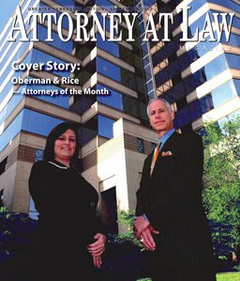Should I call a lawyer if my friend or family member is in jail or wait until he or she is released from jail?
It is best to contact an attorney immediately upon learning that a friend or loved one has been arrested. Depending upon the circumstances surrounding the case, our office may be able to assist you in gaining the person’s release. It may also be critical to the success of the case to begin an investigation immediately. Our criminal defense attorneys are available for emergency calls 24 hours a day, 7 days a week by calling (865) 249-7200.
What is a bail/bond and how does it work?
The terms bail and bond are often used to mean the same thing in most parts of Tennessee. Both refer to the amount of money that the court requires from a criminal defendant in order to release that person from jail. Every Tennessee criminal defendant is entitled to have a bond set in his or her case, unless charged with a capital crime. Bond can be paid in the following ways:
- In full to the court (often referred to as paying a “cash bond”);
- Through a bonding company (requiring 10% of the bond, plus a processing fee paid to the bondsman); or
- By posting a property bond.
A bond is posted to guarantee that a Tennessee criminal defendant will appear in court. At the conclusion of the case, a bond may be returned if the defendant appeared as required at every court date. If a criminal defendant misses a court date, bail may be forfeited and the bail or bond money may not be returned to whoever posted the bail on the defendant’s behalf. Keep in mind that the 10% and processing fee paid to a bonding company is not refundable.
What should I do if a Tennessee police officer wants to interview me?
If you are contacted by a law enforcement officer, you should politely decline to speak to them and then immediately consult with an attorney. Among other reasons, a Tennessee criminal defense attorney may be able to respond on your behalf so that your liberty is never in jeopardy. People who assume that it is okay to give an interview because they are innocent of any wrong-doing may end up being charged with an offense, or worse yet, being convicted of a crime they did not commit based on their own statement. Even seemingly innocent statements may be misinterpreted and could cause potential problems for you. It is best to have an attorney present anytime you speak with law enforcement to ensure that your legal rights are protected and your statements are not misconstrued.
What is the difference between a Felony and a Misdemeanor crime?
Felony and Misdemeanor offenses are distinguished, in part, by how long a person may be put in custody after a conviction. A Felony offense is any charge that could result in a sentence of more than one year in jail, while a Misdemeanor offense sentence may not exceed eleven months and twenty-nine days in jail. Both Felony and Misdemeanor crimes have different classifications or levels. For instance, a Class A Felony is the most serious and carries the longest sentence, while a Class C Misdemeanor is the least serious, with the shortest possible jail sentence.
When should I hire an attorney?
The sooner you hire an attorney, the better chance you have of reaching a favorable resolution in your case. Accordingly, you should contact and hire an attorney immediately following your arrest. If you have not been arrested but know or suspect that you are the focus of police investigation, you should also contact an attorney as soon as possible.
Involving an attorney in a Tennessee criminal case from the beginning may make a substantial difference in the outcome of the case. A skilled attorney will gather evidence quickly (especially evidence that will disappear in time), help his or her client deal with police through the initial phases of their investigation, and take proactive steps to protect his or her client. In many instances, an attorney may help the most before the police choose to press criminal charges.
What is the consequence in Tennessee for the officer failing to read me my Miranda rights?
The requirement to advise a criminal defendant of the Miranda rights is triggered by an arrest or once the person is placed in custody (not free to leave). If you have responded to the officer’s questions or have otherwise been interrogated when under arrest or in custody, without Miranda warnings, your Tennessee criminal defense attorney may succeed in keeping your answers out of evidence in court (also known as suppressing your statements). You should contact a skilled Tennessee criminal defense lawyer to thoroughly investigate your case and determine if the officer’s failure to read you Miranda rights may impact your case.
Can my Tennessee criminal arrest be erased from my record?
Both Felony and Misdemeanor convictions can stay on a person’s record forever. A prior Felony conviction, no matter how old, may be used to increase someone’s punishment for any subsequent Felony conviction. In certain circumstances, a Tennessee Misdemeanor conviction may also be used to increase punishment in the future. Therefore, it is crucial (if eligible) to have these convictions removed from your record.
A recent change in Tennessee’s law now allows for not only dismissed cases to be erased from your criminal record, but certain Felony and Misdemeanor convictions can also be removed from your record. If you are eligible to have your conviction expunged from your record, several detailed procedural steps must be taken and properly filed with the court. If you qualify for an expungement you should contact an experienced Tennessee criminal defense attorney to assist you.
Featured Posts
 March 25, 2025
March 25, 2025
Tennessee Drivers’ Licenses May Go Electronic
Tennessee Senate Bill 1297 was introduced this year proposing to allow Tennesseans to use Digital Driver’s Licenses (DDLs) as a valid form of identification wherever an ID is legally required, except for voting. The DDLs would allow Tennesseans to download an […]
Read More
 February 26, 2025
February 26, 2025
Potential Change in Legislation for Providing Proof of Registration to Law Enforcement
When a driver is pulled over in Tennessee for any reason, the normal request from law enforcement is: “Please provide me with your driver’s license, insurance, and proof of registration.” If you are like this author, digging through your glovebox […]
Read More February 17, 2025
February 17, 2025
Domestic Violence/Domestic Assault/Domestic Abuse Definitions
Domestic Violence/Domestic Assault/Domestic Abuse Definitions We are often asked about the difference between an assault (sometimes referred to as a “simple” assault), and a domestic abuse assault. This is an important distinction in the law because there are different bond […]
Read MoreContact
Office
Oberman & Rice
550 Main Street
Suite 730
Knoxville, TN 37902
Phone Number
(865) 249-7200
(865) 540-1696 (fax)
GPS Coordinates
Long: 35.970504
Lat: -83.914776
Useful Links
contact us today for a free consultation
We reply to non-urgent after-hours requests for consultation within 24 hours. For after-hour emergencies, please call us at (865) 249-7200.














